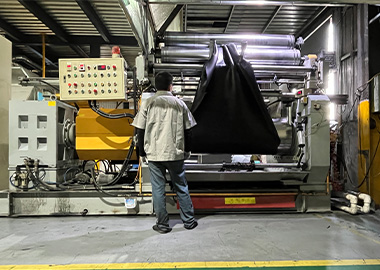auto air conditioning lines
Oktoba . 08, 2024 05:24 Back to list
auto air conditioning lines
Understanding Auto Air Conditioning Lines Importance and Maintenance
In modern automobiles, air conditioning systems play a crucial role in providing comfort to passengers, making the driving experience much more enjoyable, especially during hot weather. At the heart of these systems are the auto air conditioning lines, which serve as the arteries of the cooling system, transporting refrigerant throughout the vehicle. Understanding the components, functions, and maintenance of these lines is essential for any vehicle owner who wants to ensure the optimal performance of their air conditioning system.
What Are Auto Air Conditioning Lines?
Auto air conditioning lines are specialized tubes designed to carry refrigerant between different components of the air conditioning system. They are typically made of high-quality metals, such as aluminum or steel, and may also feature a protective rubber coating to resist corrosion and wear. There are generally two types of lines in an air conditioning system the high-pressure lines and the low-pressure lines.
- High-Pressure Lines These lines transport refrigerant from the compressor to the condenser. The refrigerant is in a gas state at this point and under high pressure, which is why these lines need to withstand extreme conditions. - Low-Pressure Lines These lines carry refrigerant from the evaporator back to the compressor. The refrigerant here is in a low-pressure, gaseous state, and thus the lines are designed to handle lower pressures but still need to be durable.
Importance of Air Conditioning Lines
The proper functioning of air conditioning lines is essential for the overall effectiveness of a vehicle's HVAC system
. If these lines become damaged or worn, it can lead to a range of problems including1. Reduced Cooling Efficiency Damage to the lines can cause refrigerant leaks, meaning less refrigerant is available to cool the air, leading to warmer temperatures inside the vehicle. 2. Increased Energy Consumption A malfunctioning air conditioning system will require more power to maintain the desired temperature, which can lead to higher fuel consumption. 3. Risk of Component Damage If leaks occur, it may lead to the compressor and other components working harder than intended, increasing the risk of significant damage and costly repairs.
auto air conditioning lines

Maintenance Tips
To prolong the life of your air conditioning lines and ensure they function efficiently, consider the following maintenance tips
- Regular Inspections Regularly check the AC lines for signs of wear, cracks, or any signs of leaking refrigerant. Early detection can prevent more significant issues down the road.
- Listen for Unusual Noises If you hear hissing or bubbling sounds when the AC is running, this may indicate a refrigerant leak in the lines.
- Monitor Performance Keep an eye on the cooling performance of your vehicle. If you notice a decline in cooling efficiency, it may be time to consult a professional to inspect the lines and other components.
- Professional Servicing Schedule regular maintenance with a trusted automotive technician who can thoroughly inspect the air conditioning system, including the lines, to ensure everything is in top condition.
In conclusion, auto air conditioning lines are vital components of a car’s climate control system. Understanding their role, recognizing the signs of potential issues, and ensuring proper maintenance can lead to a more comfortable driving experience and extend the lifespan of your vehicle's air conditioning system.
